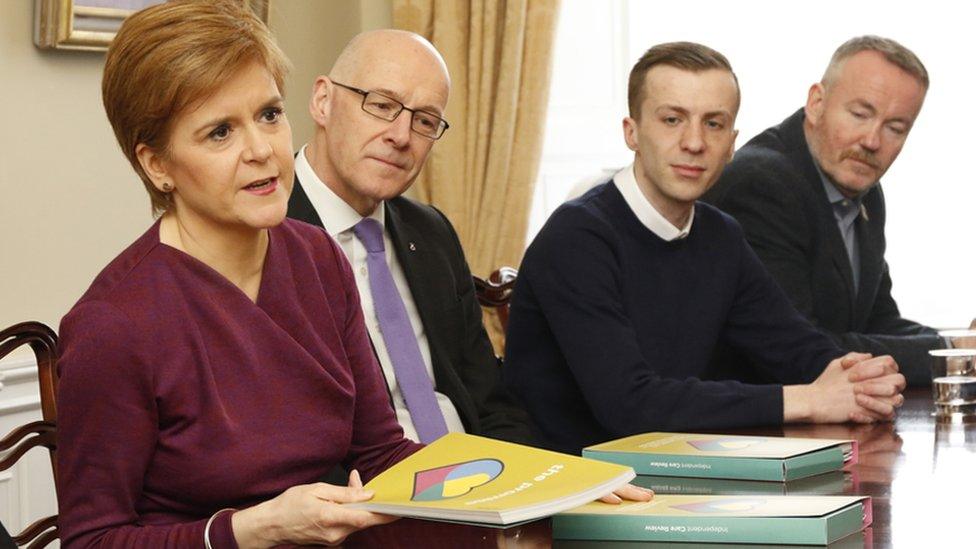Families in Scotland 'destitute' after years of austerity
- Published

Research published by children's charities suggest need is growing while services are diminishing
Families in Scotland are facing destitution following years of austerity, according to two national children's charities.
Research from NSPCC Scotland and Barnardo's suggests support services are diminishing amid escalating need.
The report described people struggling to obtain food, secure housing and basic necessities before the Covid-19 pandemic began.
There are concerns the pandemic will compound this.
The research, external revisits a study that was carried out in 2013 by comparing family support services then with those in 2019.
Its main findings were that in the intervening period - following the roll out of Universal Credit - poverty has remained the "core issue" but that services were seeing more families experiencing destitution.
Destitution is when a person has lacked two or more of six essentials over the past month because they cannot afford them, according to the Joseph Rowntree Foundation.
This includes shelter, food, heating, lighting, clothing and footwear and basic toiletries.
Welfare reform 'exacerbating' poverty
The report said severe hardship has affected parents' mental health and family relationships while "different parts of the system inadvertently work to compound people's problems".
The report also said those now being referred to the charities have more complex difficulties and greater needs - and that too many families were coming to services already at crisis point.
Service managers told researchers welfare reform had "exacerbated" the poverty they had observed over the last few years.
"The rise of foodbanks here is massive," one said. "Families use them on a regular basis and you can see that, families who come to us and are really struggling."
The charities have called on the Scottish government to implement findings by the Independent Care Review, which issued a report in February., external
They added that the Covid-19 pandemic has presented the opportunity to overhaul services.
Matt Forde, NSPCC Scotland head of service, said: "We know that adverse and traumatic experiences in childhood can have a profound impact on a person's life.
"And it is crucial this unacceptable situation, now compounded by the Covid-19 crisis, is addressed with a matter of urgency."
Martin Crewe, director of Barnardo's Scotland, said: "The coronavirus crisis provides a huge opportunity to make meaningful, sustainable, transformative change.
"The Independent Care Review's promise has given us a blueprint for family support and we must deliver on this without delay."
The Scottish government welcomed the report, saying that it was "prioritising" the introduction of the Scottish Child Payment which will open for applications in November and begin payments in February.
A Scottish government spokesperson said: "We have continually called for action to reverse welfare cuts which are hitting harder than ever.
"We responded to challenges set out in the Independent Care Review's Promise report, by working with Fiona Duncan and her team to establish the Promise Partnership as a priority.
"Already we have invested £4m to the partnership to deliver holistic family support, in line with the key principles of our framework which have been shaped by the Covid-19 Children and Families Collective Leadership Group."
- Published5 February 2020

- Published28 March 2019

- Published21 September 2020
